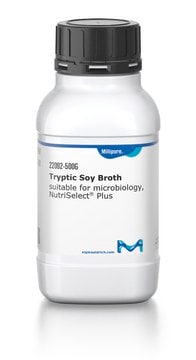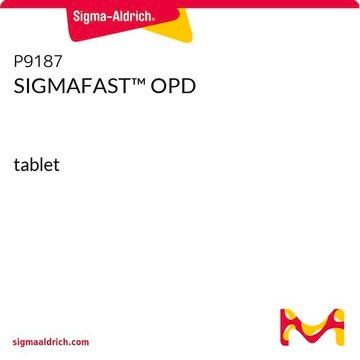04078
Hydrogen peroxide–Urea adduct
powder, 15-17% active oxygen basis
Synonym(s):
Carbamide Per hydrate, Carbamide peroxide, Percarbamide, Urea hydrogen peroxide
About This Item
Recommended Products
vapor pressure
23.3 mmHg ( 30 °C)
Quality Level
form
powder
composition
active oxygen, 15-17%
reaction suitability
reagent type: oxidant
mp
85-90 °C (dec.)
90-93 °C (lit.)
functional group
amine
SMILES string
OO.NC(N)=O
InChI
1S/CH4N2O.H2O2/c2-1(3)4;1-2/h(H4,2,3,4);1-2H
InChI key
AQLJVWUFPCUVLO-UHFFFAOYSA-N
Looking for similar products? Visit Product Comparison Guide
General description
Application
Reactant used as an oxidant
Features and Benefits
- Inexpensive
- Commercially available
- Stable solid.
Signal Word
Danger
Hazard Statements
Precautionary Statements
Hazard Classifications
Eye Dam. 1 - Ox. Sol. 3 - Skin Irrit. 2
Storage Class Code
5.1B - Oxidizing hazardous materials
WGK
WGK 2
Flash Point(F)
Not applicable
Flash Point(C)
Not applicable
Personal Protective Equipment
Choose from one of the most recent versions:
Already Own This Product?
Find documentation for the products that you have recently purchased in the Document Library.
Customers Also Viewed
Our team of scientists has experience in all areas of research including Life Science, Material Science, Chemical Synthesis, Chromatography, Analytical and many others.
Contact Technical Service















